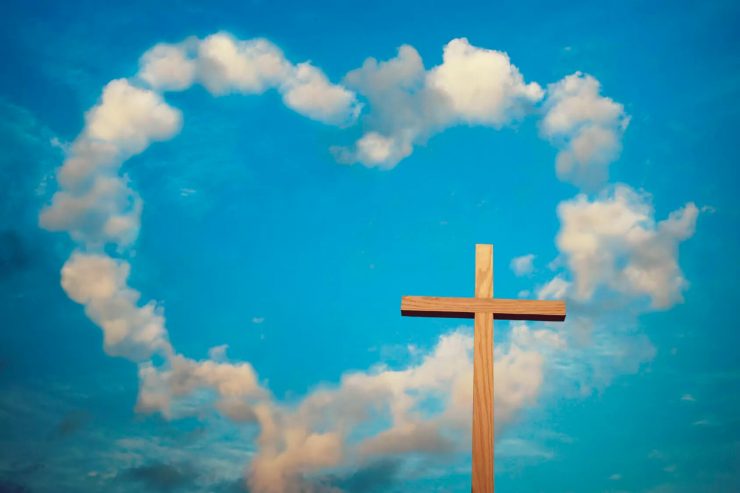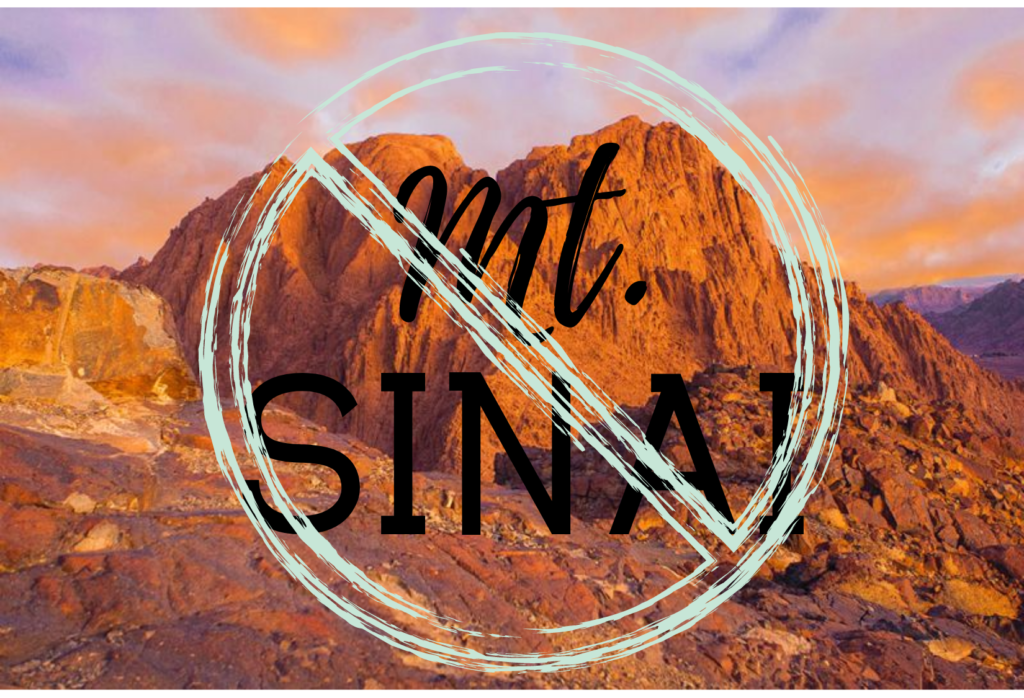Readings: Exodus 19:1–20 | 2 Cor. 8:1–9, 13–15 | Mark 5:21–43
Text: Exodus 19:1-20
How do we get to know one another? Through a common bond at church or school? That foundation of friendship, or in the case of our spouse of romance and affection, sets the stage for what we know about the other person.

What’s the basis on which we know the Lord? For Israel it was the covenant. Each time He introduces the covenant to His people, He starts with what He has done: “You yourselves have seen what I did to the Egyptians, and how I bore you on eagles’ wings and brought you to myself.” The way the sons of Israel came to know the Lord was through His saving work.
- We, like them, come to know Him through His saving work.
- What’s the first way you came to know Him? Baptism as a child? Becoming acquainted as an adult in need of forgiveness? Daily reminded of your dependence on His grace?

- This sets the tone for His conversation with us:
- “9 But you are a chosen race, a royal priesthood, a holy nation, a people for his own possession, that you may proclaim the excellencies of him who called you out of darkness into his marvelous light. 10 Once you were not a people, but now you are God’s people; once you had not received mercy, but now you have received mercy.” (1 Peter 2:9-10)
- Just like the people of Israel, we have been called to belong to God, and we come to know Him through His mercy to a scattered human race, lost in darkness. But in Christ, we have a new identity: Child of God and child of light.
- Even though we know His saving work more clearly, we still struggle to apply it day to day.
- The Israelites were quick to say, “All that the Lord has spoken we will do.” But did they really know to what they were committing?
- In our confirmation vows, we pledge—with the Lord’s help—to remain faithful unto death and to suffer all, even death, rather than fall way from the Lord. What trials we face that we couldn’t fathom ahead of time.

- What can be done?
- The same thing which the Apostles did: “strengthening the souls of the disciples, encouraging them to continue in the faith, and saying that through many tribulations we must enter the kingdom of God.” (Acts 14:22)
- When things get hard, should we give up and think we made a mistake by pledging our lives to God? Or is that the very time in which the Lord wants us to give up on ourselves, our strength, our ways, our plans. Rather, we ought to commit our lives to the God who made heaven and earth, and who graciously cares for us all.
- He instructed the Israelites to consecrate or set themselves apart.
- At that time, it meant to wash their garments, not touch the mountain, and to not go near a woman.
- For us, we have a better washing, the waters of Baptism to which God called us again today: “Baptism, which corresponds to this, now saves you, not as a removal of dirt from the body but as an appeal to God for a good conscience, through the resurrection of Jesus Christ, 22 who has gone into heaven and is at the right hand of God.” (1 Peter 3:21-22)
- While the Israelites were warned from touching the mountain, through the blood which Jesus offered, we are actually invited near to Him:
- 18 For you have not come to what may be touched, a blazing fire and darkness and gloom and a tempest… 22 But you have come to Mount Zion and to the city of the living God, the heavenly Jerusalem, and to innumerable angels in festal gathering, 23 and to the assembly of the firstborn who are enrolled in heaven, and to God, the judge of all, and to the spirits of the righteous made perfect, 24 and to Jesus, the mediator of a new covenant, and to the sprinkled blood that speaks a better word than the blood of Abel. (Hebrews 12:18-24)
- That’s because the mountain to which we are called is not Sinai, but Calvary where the blood of Jesus was poured out for the sins of all.


- The Israelites were to prepare themselves by not having intimate relations, and our bodily preparations—while not required—also prepare us to turn our full attention to what He is saying. The Small Catechism urges us, “Fasting and bodily preparation are certainly fine outward training. But that person is truly worthy and well prepared who has faith in these words: ‘Given and shed for you for the forgiveness of sins.’”
- Fasting from food may be helpful, but we ought to set aside whatever would detract our hearing of God’s Word. Sometimes there’s some vocational conflict, like a parent who has to redirect their children in the pew, or a job that occasionally keeps you away from worship but otherwise provides for your family.
- Bodily preparation is common sense things, which we apply to other areas of our life. We get sleep before tests or long trips; we put down the phone while we drive. How much more attention the Divine Service deserves, because this is the very place where heaven touches earth!
In Jesus Christ, we have come to a greater mountain, not one covered in thunder and smoke, but one where the once-for-all sacrifice for sins was made. That took our sins away and the fear we have that God will condemn us. Even though we do not see the consuming fire of God, may the Holy Spirit keep us in reverent fear and faithful devotion to our Lord and Savior, Jesus Christ. Amen.

Leave a Reply